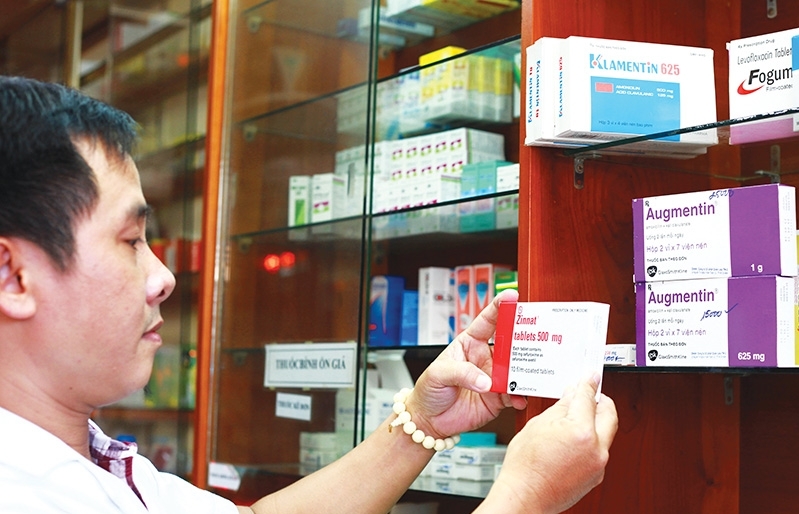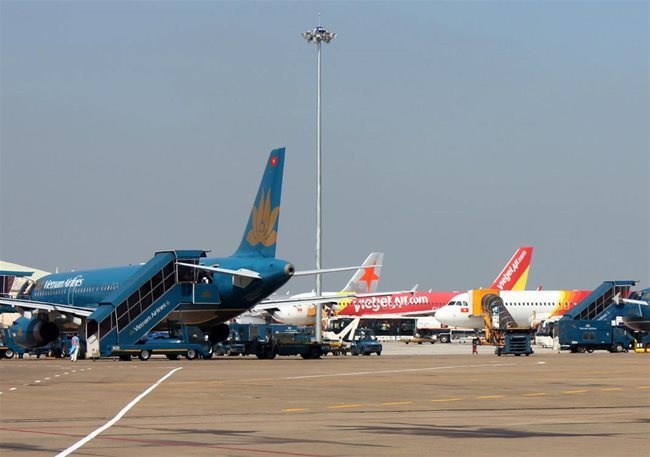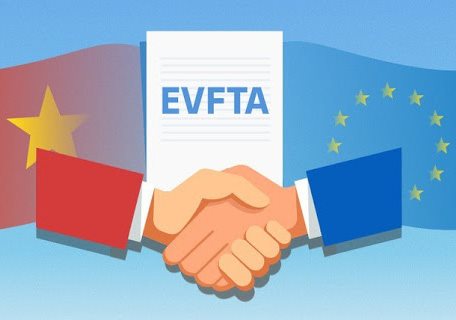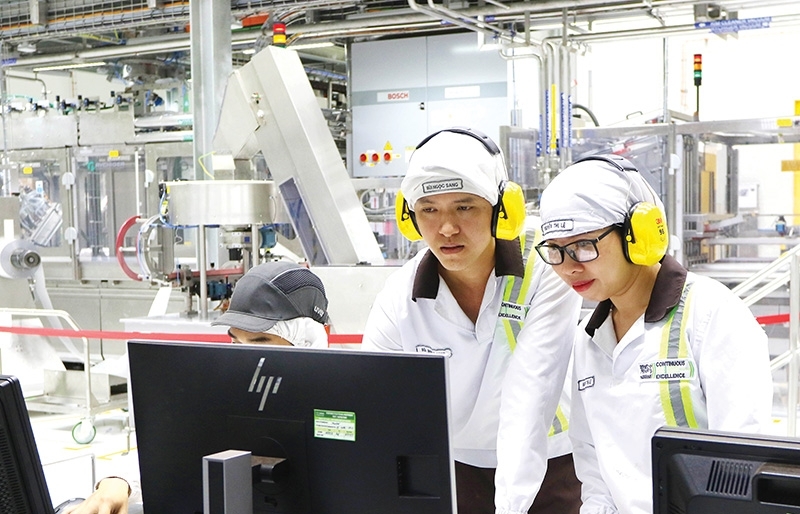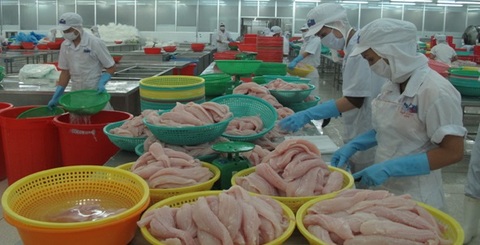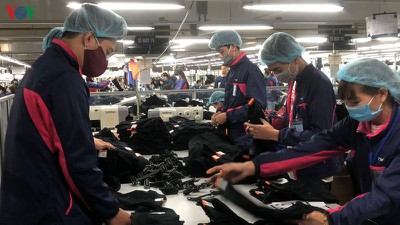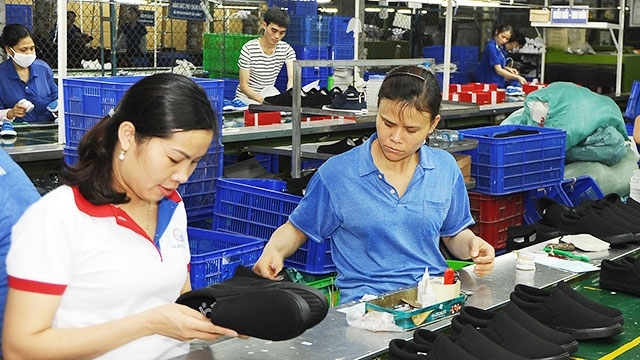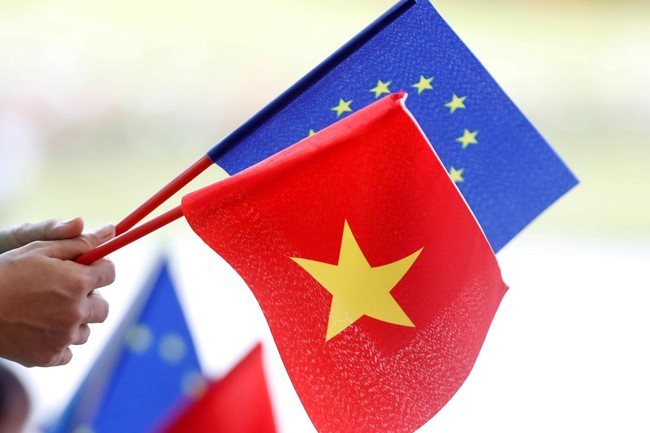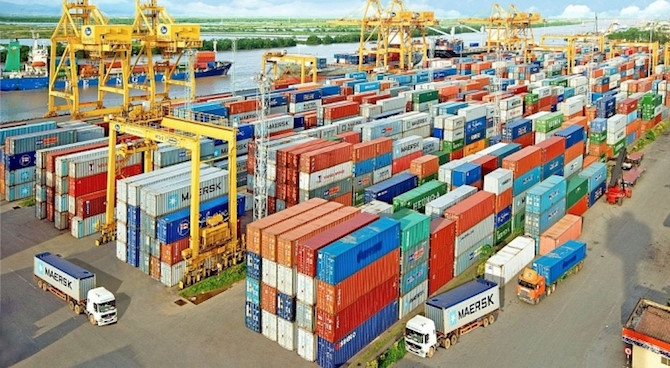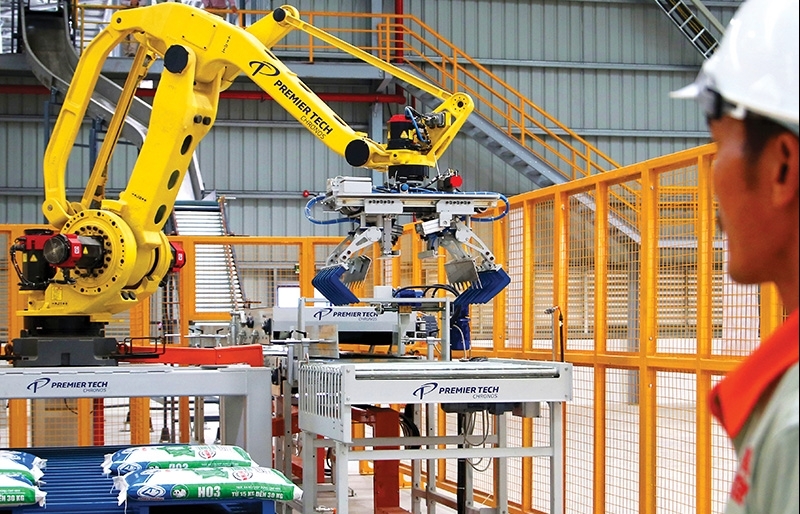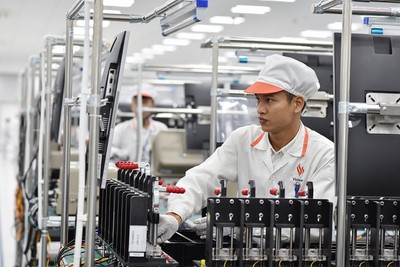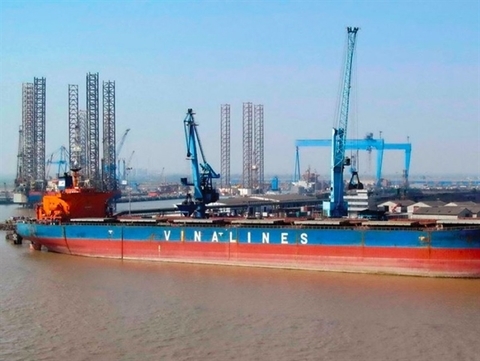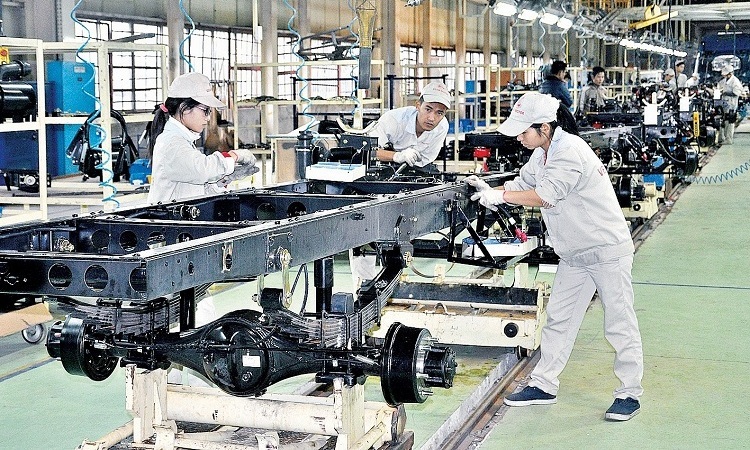- © Copyright of Vietnamnet Global.
- Tel: 024 3772 7988 Fax: (024) 37722734
- Email: [email protected]
FTAs
Update news FTAs
EVFTA widens varied procurement chances
Starting from this year, investors from EU member states will for the first time be allowed to tender for many types of public projects in Vietnam under EU-Vietnam Free Trade Agreement commitments.
Chance of a lifetime
 Would the movement of the international capital flow together with the re-arrangement of the global supply chain since the start of the Sino-U.S. trade war and especially under the impact of the Covid-19 pandemic
Would the movement of the international capital flow together with the re-arrangement of the global supply chain since the start of the Sino-U.S. trade war and especially under the impact of the Covid-19 pandemic
Winners, losers expected from EVFTA
 As free trade agreements (FTAs), including the EU–Vietnam Free Trade Agreement (EVFTA) that is about to be ratified by the Vietnam National Assembly, tend to be asymmetric in nature,
As free trade agreements (FTAs), including the EU–Vietnam Free Trade Agreement (EVFTA) that is about to be ratified by the Vietnam National Assembly, tend to be asymmetric in nature,
Utilisation of EVFTA requires strict clarity
 The upcoming bilateral free trade between Vietnam and the EU may be a tough nut to crack unless the country can make thorough preparations for fulfilling commitments in the deal to further its trade and investment with the bloc.
The upcoming bilateral free trade between Vietnam and the EU may be a tough nut to crack unless the country can make thorough preparations for fulfilling commitments in the deal to further its trade and investment with the bloc.
VN Trade Ministry sets up working groups for EVFTA
 The Import and Export Department under the Ministry of Industry and Trade has set up different working groups to implement the the EU-Viet Nam Free Trade Agreement (EVFTA).
The Import and Export Department under the Ministry of Industry and Trade has set up different working groups to implement the the EU-Viet Nam Free Trade Agreement (EVFTA).
EVFTA implementation requires local firms to thoroughly grasp regulations
 Businesses and management agencies should be fully aware of the regulations and rights included within the EU-Vietnam Free Trade Agreement (EVFTA) before the trade deal fully comes into effect.
Businesses and management agencies should be fully aware of the regulations and rights included within the EU-Vietnam Free Trade Agreement (EVFTA) before the trade deal fully comes into effect.
Vietnamese businesses ready to be connected with “avenue” EVFTA
 Economic cooperation between Vietnam and the European Union (EU) is about to turn a new page in history as the Vietnamese National Assembly is moving very close to ratifying the EU-Vietnam Free Trade Agreement (EVFTA).
Economic cooperation between Vietnam and the European Union (EU) is about to turn a new page in history as the Vietnamese National Assembly is moving very close to ratifying the EU-Vietnam Free Trade Agreement (EVFTA).
Trade defence instruments important to Vietnam’s open economy
 Strengthening the application of trade defence instruments would be necessary for Vietnam, which was among countries with the highest economic openness level, according to the Ministry of Industry and Trade.
Strengthening the application of trade defence instruments would be necessary for Vietnam, which was among countries with the highest economic openness level, according to the Ministry of Industry and Trade.
Local fertiliser industry to benefit from EVFTA
 Free trade agreements (FTA), including the latest one signed between Viet Nam and the EU, will benefit the domestic fertiliser sector, with more diverse import and export markets, experts said.
Free trade agreements (FTA), including the latest one signed between Viet Nam and the EU, will benefit the domestic fertiliser sector, with more diverse import and export markets, experts said.
Vietnam accelerates process to put EU trade deal into operation
 The European Union (EU) – Vietnam Free Trade Agreement (EVFTA) will officially take effect for both the EU and Vietnam after the National Assembly ratifies and the two sides complete the notification procedures under the agreement.
The European Union (EU) – Vietnam Free Trade Agreement (EVFTA) will officially take effect for both the EU and Vietnam after the National Assembly ratifies and the two sides complete the notification procedures under the agreement.
What are the prospects for rice exports in 2020?
 Vietnamese rice exports in 2020 are expected to be more prosperous thanks to a series of free trade agreements (FTAs) coming into force, after plummeting in both export volume and value in 2019.
Vietnamese rice exports in 2020 are expected to be more prosperous thanks to a series of free trade agreements (FTAs) coming into force, after plummeting in both export volume and value in 2019.
Smorgasbord of opportunities from freshly approved EVFTA
 With ratification of the EU-Vietnam Free Trade Agreement and the EU-Vietnam Investment Protection Agreement, the floodgates are expected to open for a new wave of European investment into the Vietnamese market.
With ratification of the EU-Vietnam Free Trade Agreement and the EU-Vietnam Investment Protection Agreement, the floodgates are expected to open for a new wave of European investment into the Vietnamese market.
Vietnam says to ratify EVFTA in May
 The EVFTA will be ratified in May and take effect in July this year if everything fares well, said Minister of Industry and Trade Tran Tuan Anh.
The EVFTA will be ratified in May and take effect in July this year if everything fares well, said Minister of Industry and Trade Tran Tuan Anh.
The path to $500 billion import/export turnover
 Just within five years, from 2015 to 2019, Vietnam’s import/export turnover reached $2.106 trillion, which was higher than the total import/export turnover of the 15 years before.
Just within five years, from 2015 to 2019, Vietnam’s import/export turnover reached $2.106 trillion, which was higher than the total import/export turnover of the 15 years before.
Evaluating first year of CPTPP in action
 The landmark Comprehensive and Progressive Agreement for Trans-Pacific Partnership has been in force for more than a year now, influencing the trade activities of member economies.
The landmark Comprehensive and Progressive Agreement for Trans-Pacific Partnership has been in force for more than a year now, influencing the trade activities of member economies.
Launching a fruitful and bright decade
 The year 2020 is expected to bring about both opportunities and challenges for Vietnam to soar higher.
The year 2020 is expected to bring about both opportunities and challenges for Vietnam to soar higher.
Vietnam’s exports set to gain momentum from FTAs
 As an array of new-generation Free Trade Agreements (FTA) start to take effect in early this year, Vietnam’s export commodities can enjoy competitive advantages as a result of the removal of tariff barriers.
As an array of new-generation Free Trade Agreements (FTA) start to take effect in early this year, Vietnam’s export commodities can enjoy competitive advantages as a result of the removal of tariff barriers.
State revenue unlikely to fall despite numerous FTAs
 Reduced revenue from cutting taxes on imported goods in accordance with various FTAs Vietnam had signed was unlikely to affect State revenue, said the finance ministry in a conference held on December 12 in Hanoi.
Reduced revenue from cutting taxes on imported goods in accordance with various FTAs Vietnam had signed was unlikely to affect State revenue, said the finance ministry in a conference held on December 12 in Hanoi.
Economic institutional reform still has many shortcomings
 Vietnam has gained certain achievements in completing the market mechanism, and adjusting the corresponding role of the State in the economy.
Vietnam has gained certain achievements in completing the market mechanism, and adjusting the corresponding role of the State in the economy.
Vietnam forgoes US$536.83 million tax under FTA commitments
 The contribution of import duty to customs revenue has been declining over the past few years, from 21.85% in 2017 to 17.4% in 2018 and 16.7% in 2019.
The contribution of import duty to customs revenue has been declining over the past few years, from 21.85% in 2017 to 17.4% in 2018 and 16.7% in 2019.
